Wagner: Tristan und Isolde (de Billy)
Introduction
Isolde, an Irish princess is being escorted to Cornwall against her will to marry King Marke. On the ship, she remains close to her maid Brangäne, full of both hatred and love for her escort Tristan, Marke`s nephew, whose life she once saved even though he had killed the man she was due to marry. She demands that Tristan should visit her so he can atone for his behaviour. She intends him to drink poison, which she then intends to take herself, but Brangäne deliberately swaps the poison for a love potion. Tristan and Isolde fall fall in love immediately but as the ship moors in Cornwall they are separated when Marke arrives to claim his bride.
Marke and Isolde are married but Tristan still visits in secret, knowing it is safe to approach when a light is extinguished. However, his friend Melot, who is also in love with Isolde and jealous of Tristan, manages to see that the lovers are discovered by the King. Marke doesn`t react as Melot wanted, but is strangely accepting of it all, despite being heartbroken. Melot cannot stand this, and attacks Tristan himself, and inflicts a damaging wound.
Tristan is taken to his family castle in Brittany by his faithful servant Kurwenal. The wound however will not heal, so Kurwenal sends word to Isolde for help. Isolde`s mother was famous for weaving spells and developing various potions (which is how the trouble started in the first place). Isolde finally arrives, but too late. Tristan dies at that moment. Marke, Melot and Brangäne have followed closely behind which frightens the Bretons into thinking Tristan is being attacked and so a small battle ensues. Both Melot and Kurwenal are killed, leaving Marke to mourn the loss of all those he loved and Isolde herself dies over Tristan`s body. True love is only consummated in death...at least this is how Wagner intended the story to go.
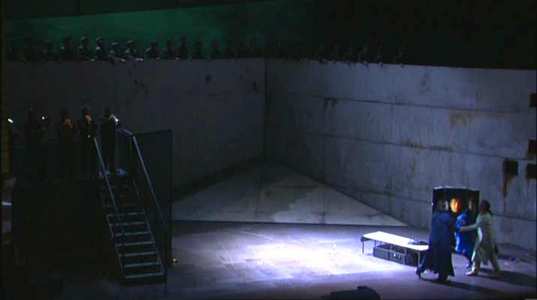
Video
This DVD is presented in NTSC (bit annoying, as I keep forgetting to change the TV setup) 16:9 Anamorphic. Everything is nice and sharp and the rather fine lighting of this production is brought out clearly. Again, however, we are faced with very wobbly camerawork in places, and this seems par for the course in performances from this opera house, which is a shame.
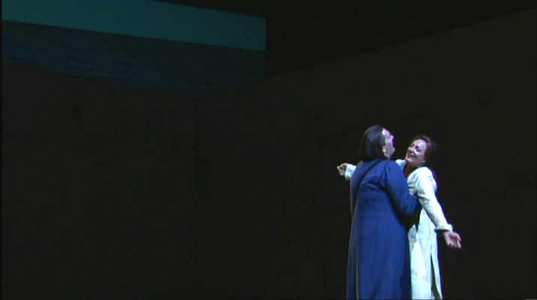
Audio
The sound overall, is rather splendid, favouring the singers quite obviously, but when the orchestra is let loose there is an amazing transformation. Whatever jiggery-pokery was going on with the balance certainly works wonders when you need the orchestral sound to explode through your speakers. Here, the DTS is a clear as a bell.
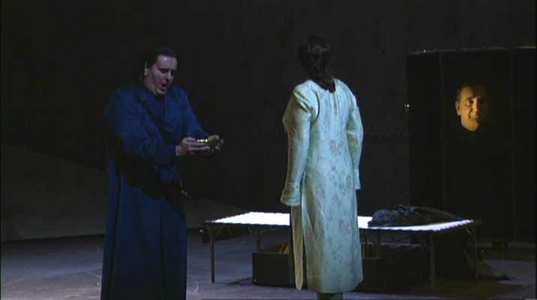
Features
Extras are much the same as we have come to expect, being an illustrated synopsis of the plot; the obligatory single pictures of the cast on stage revealing the characters they play; a booklet with the DVD explaining some of the reasons behind the production, and subtitles in English, French, German, Spanish, Italian and Catalan. Unfortunately there is no `making of` in any shape of form, which we get with other opera productions from Opus Arte, but not (as far as I can remember) when the Gran Teatre del Liceu is involved.
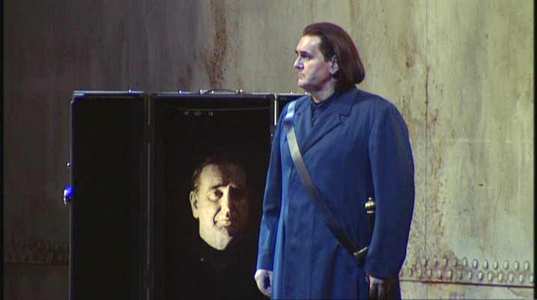
Conclusion
I ended my last review by suggesting it was a shame that Opus Arte`s Wagner couldn`t come from Amsterdam, whose theatres seem to produce great things for them every time.
Time to eat my words I think, although I still have a reservation or two.
The staging left me a little cold, and to be honest, I had no idea what the projected head in the suitcase was all about, but directors are an odd bunch and I`m sure it made sense after a couple of large brandies. Again, and this seems to be more common in recent opera productions, much of the colour scheme is grey and drab, although any flashes of other colours then become more vibrant, and this is very noticeable in the great Act 2 love duet which takes place on a small piece of green turf.
Also, a couple of peculiar tweaks to the plot such as Tristan`s almost deliberate self-wounding in his `fight` with Melot, and Kurwenal`s suicide, didn`t ring true. These are half-explained away in the booklet, but I wasn`t convinced. More acceptable is the fact that Isolde doesn`t die here, and this produces a surprisingly fresh take on the Liebestod.
Overall, this performance is a revelation compared to other Wagner offerings from the same company, most notably with the orchestral playing. The sound is ravishing, and de Billy paces the music brilliantly, letting it flow naturally and where necessary, squeezing every possible ounce of feeling out, especially in the dangerously slow Act 3 prelude (maybe I`ve become too used to faster versions). Perhaps it`s better use of the microphones here but the strings sound more together and less scared of Wagner`s fiendish passagework than in the various parts of `The Ring`, and everything is balanced nigh-on perfectly. Special mention has to be given to the Cor Anglais in Act 3 too. A solo that lengthy should be prone to at least a couple of squawks in a live performance, but here it was almost perfect.
My reservations about this Tristan is again, I`m afraid, based on John Treleaven`s (Tristan) singing. At times he is painfully sharp (45 minutes + into Act 2 for starters) and tends to wobble far too much for my liking, despite being one of the world`s most celebrated Heldentenors (apparently his recent Siegfried in the Royal Opera House was very well received). However, he is also able to produce some wonderful, thoughtful quiet notes for which almost all is forgiven.
Falk Struckmann (Kurwenal) and Liobal Braun (Brangäne) are quite superb, matching the leads in power and musicality, and the singing of the chorus is some of the best I`ve heard.
The highlight though is Deborah Polaski (Isolde). She is one of the greatest Wagnerians of our time, and this performance captures her at her best. Completely outsinging Treleaven in their duets, but never overpowering, she produces consistently beautiful musical lines which would make anyone watching (although I managed to hold out) skip straight to the Liebestod at the end. They wouldn`t be disappointed. Her singing matches Margaret Price in intensity and pathos (almost too good, yet still my favourite Isolde) on the Carlos Kleiber recording, and the fact that this is a live performance is all the more incredible. This DVD is worth buying for Polaski alone.
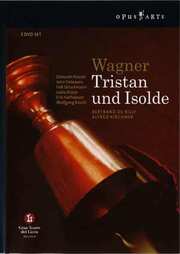
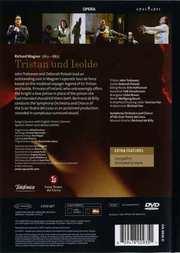




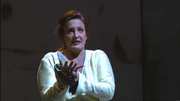
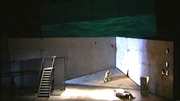
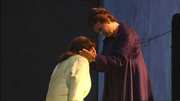
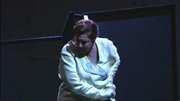
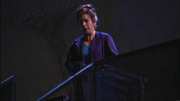

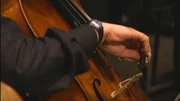
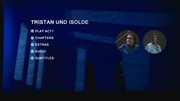






























Your Opinions and Comments
Be the first to post a comment!